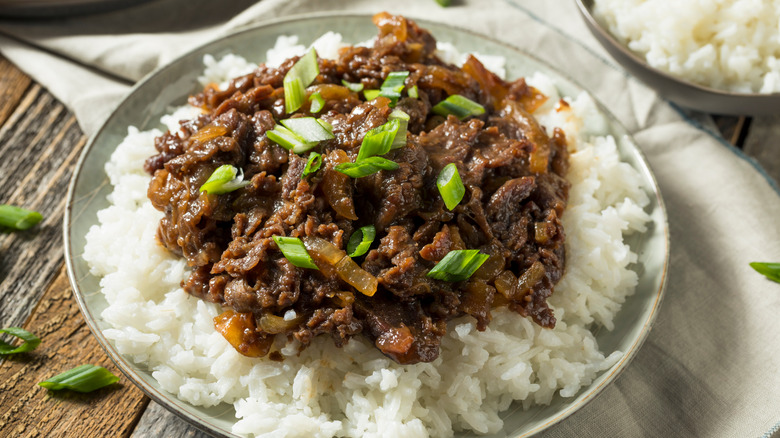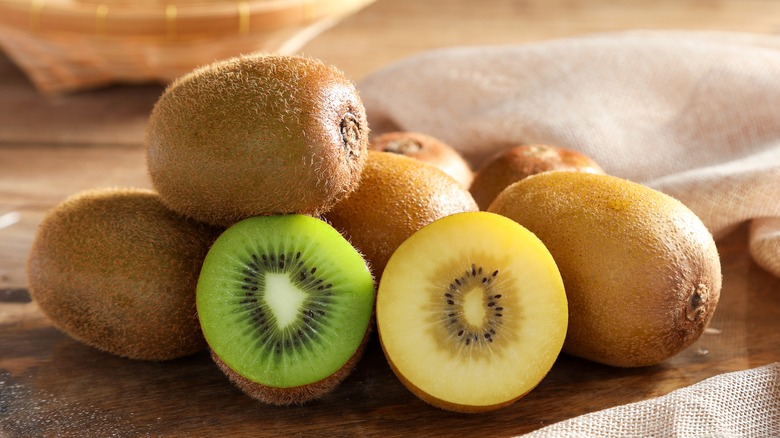The Sweet Marinade Ingredient That Keeps Bulgogi Tender
Go to any Korean restaurant in the United States, and you'll probably find bulgogi (which means "fire meat") on the menu. The dish has deep roots in Korean history, starting from ancient times — when skewered meat was eaten — all the way to the early 1900s — when royals dined on thin slices of beef that were marinated and charbroiled. As the country modernized and beef consumption became more commonplace, bulgogi became a kitchen staple by the 1990s and is now one of South Korea's most popular culinary exports. Traditionally eaten with rice or wrapped in lettuce, this meat dish combines sweet, salty, and savory flavors for a well-rounded meal.
You've got options when it comes to the cut of beef to use for bulgogi, such as ribeye, flank, sirloin, tenderloin, skirt steak, and the ever-popular brisket. The ingredient list for the marinade differs by recipe, but common ingredients include soy sauce, garlic, sesame oil, ginger, sugar, and Asian pear, which adds sweetness. However, there is one ingredient you might want to consider adding to your bulgogi marinade in place of the pear when you still want a sweet, fruity flavor to infuse with the beef.
Use kiwi as a pear substitute for your bulgogi marinade
According to James Beard Award-winning chef Peter Serpico, kiwi is a fitting replacement for pear or pineapple in bulgogi marinades because it contains the same enzyme — calpain, which tenderizes the beef (via Smithsonian Magazine). Asian pears, also called Korean pears, have plenty of juice and the right amount of calpain to soften meat. Kiwi, however, contains far more calpain, so it works in a fraction of the time. You should keep this in mind if you switch out pear for kiwi in a bulgogi marinade. Beef can sit in a pear-based marinade in the fridge overnight, but you shouldn't do the same when using a kiwi-based (or pineapple-based) marinade because the enzymes tenderize the meat quickly. If you leave the beef in a kiwi-based marinade for too long, it will break down too much and have an unpleasant texture.
Kiwis have a relatively neutral flavor profile, so get ready for subtle sweetness in your bulgogi. If you prefer using pear but don't have Asian pears available locally, you can use Bosc pears instead. These particular pears have less juice, so you may need more of them, but the calpain works just as slowly. You'll have to experiment with the right amount of fruit for your marinade. But when you nail this and the proper marination time down, you'll have a hit on your hands, whether you cook the bulgogi in a pan or on the barbecue grill.

